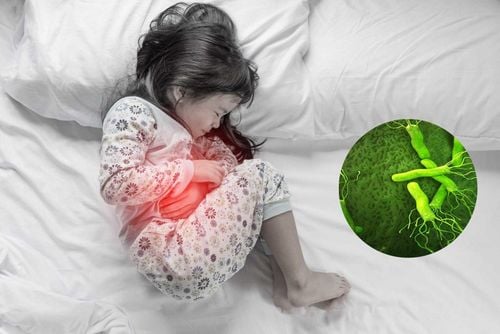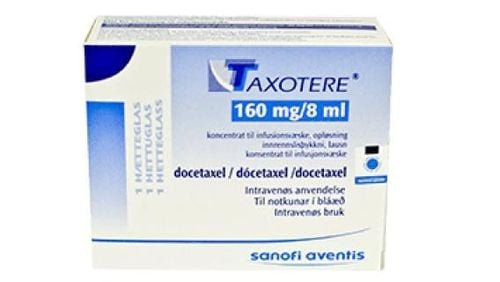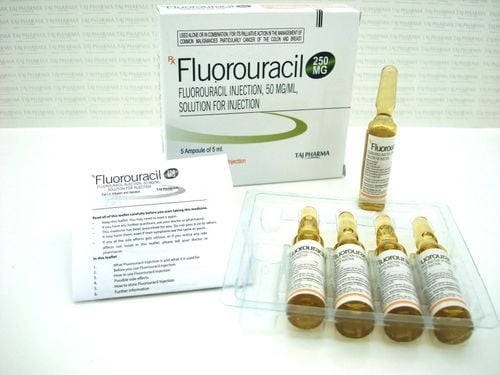This is an automatically translated article.
Stomach cancer is the most common type of digestive cancer in both men and women. The American Cancer Society estimates that 26,560 men and 11,180 women will be newly diagnosed with stomach cancer in 2021. In Vietnam, in 2018 there were 17,527 new cases of stomach cancer and 15,065 deaths from the disease. this. Stomach cancer patients are common after the age of 50, but recently the disease tends to be younger, which makes many people wonder whether stomach cancer is hereditary.
1. Risk factors for stomach cancer
Currently there is no clear evidence to conclude what the real cause of stomach cancer is, however studies have found an association of stomach cancer with some of the following risk factors:
Precancerous gastric lesions: Gastritis if not treated in time can lead to chronic atrophic gastritis, then the cells can change metaplasia, dysplasia progresses from the light, moderate to heavy. Prolonged dysplasia can cause stomach cancer. Helicobacter pylori: Helicobacter pylori is the cause of chronic atrophic gastritis, causing precancerous lesions. Not everyone infected with HP will develop stomach cancer, but gastritis caused by HP increases the risk of stomach cancer. Lifestyle habits: The habit of eating foods containing nitrates such as salted foods, smoked meats, grilled meats, etc. also increases the risk of stomach cancer. Obesity: Obese people have a higher risk of stomach cancer than the general population. Family factors: People who have close relatives (father, mother, siblings) with stomach cancer have a higher risk of developing this disease than people without a family history of stomach cancer.
2. Is stomach cancer hereditary?
The rate of stomach cancer at a young age increases, causing many people to worry, wondering if stomach cancer is hereditary, is stomach cancer inherited from mother to child? With the increasing rate of stomach cancer year by year, a question arises whether stomach cancer is contagious. In fact, only about 5-10% of cancers in general are inherited. Genetic mutations (germline mutations, germline mutations) arise from germ cells. After division, these mutations exist in every cell of the body and have the ability to pass on to the next generation with 50% probability. As for the acquired mutation that occurs in only one or certain cells after exposure, causing pathology in that organ, this mutation is not inherited.
About 20 types of cancer have been found to run in families, including stomach cancer. However, it should be emphasized that not everyone with stomach cancer will carry the mutation or genetic disorder to the next generation. About 10% of stomach cancer cases have a familial factor. Studies have found a number of mutations associated with stomach cancer that can be passed on to the next generation:
Gene APC: This is a tumor suppressor gene located on the long arm of chromosome 5. People found that inactivation of the APC gene could be the beginning of carcinogenesis. A frequent heterozygous loss on this long arm of chromosome 5 has been detected in gastric carcinoma. BMPR1A gene: Carriers of the BMPR type 1A gene mutation associated with juvenile Polposis syndrome (JPS), which JPS increases the risk of several types of cancer, including stomach cancer. CDH1 gene mutation: This is the most common germline mutation that has been detected in gastric cancer. The CDH1 mutation increases the risk of developing stomach cancer by up to 70-80% over a lifetime. BRCA1, BRCA2 gene mutations: People who carry BRCA1, BRCA2 mutations, in addition to having an increased risk of breast cancer, also have an increased risk of stomach cancer. EPCAM Gene Mutation: The EPCAM gene is an antigen-encoding gene that has been implicated in carcinomas. Some other gene mutations such as MLH1, MSH2, MSH6 gene mutation, PMS2 gene mutation, SMAD4 gene mutation, STK11 gene mutation, etc. are also associated with stomach cancer. In addition, a number of genetic syndromes have also been linked to stomach cancer, including:
Lynch syndrome: Lynch syndrome is commonly known as a risk factor for colorectal cancer. In addition, people with Lynch syndrome are also associated with an increased risk of stomach cancer and many other cancers at a young age. Lynch syndrome can be caused by mutations in the MLH3, MSH6, TGFBR2, PMS1 and PMS2 genes. FAP syndrome: APC gene defect is the cause of familial adenomatous polyposis syndrome (FAP syndrome), characterized by colonic polyposis, FAP syndrome also slightly increases the risk of stomach cancer. Peutz-Jeghers syndrome: STK11 gene mutations are the cause of Peutz-Jeghers syndrome, which presents with multiple polyps, benign tumors in the gastrointestinal tract, and may increase the incidence of gastric cancer in individuals with the syndrome. this evidence. Li - Fraumeni syndrome: TP53 gene mutations lead to Li - Fraumeni syndrome, which increases the risk of stomach cancer at a young age.
3. Stomach cancer screening
The following subjects should screen for early gastric cancer for early detection and timely treatment.
People over 50 years old. People who have close family members (father, mother, brother, sister, brother) with stomach cancer or other digestive tract cancer. People with chronic gastritis - duodenal ulcer, people infected with HP bacteria. People who have a habit of eating a lot of salted foods, poor quality preserved foods, baked goods. People smoke a lot, people drink a lot of alcohol. People with gastrointestinal symptoms: Abdominal pain, belching, prolonged heartburn, black stools,... Currently, early cancer screening is considered a perfect measure in detecting and treating timely types of cancer. Reduce treatment costs and patient mortality. Vinmec International General Hospital always deploys and introduces to customers the Early Cancer Screening Package at Vinmec - Peace of mind to live well to help with imaging, genetic testing and biomarkers for early tumor detection. .
Choosing the Early Cancer Screening Package at Vinmec - Peace of mind to live a healthy life, customers will get:
Only one gene test can assess the risk of 16 common cancers in both men and women; Early detection of early signs of cancer through imaging, endoscopy and ultrasound; The examination operation is simple, careful and accurate; A team of well-trained specialists, especially in oncology, is capable of handling medical examination and treatment cases. With a system of facilities, advanced and modern medical equipment and a team of doctors with deep expertise and experience, it will help the process of examination and treatment of patients at Vinmec become faster with High efficiency, save cost and time.
Please dial HOTLINE for more information or register for an appointment HERE. Download MyVinmec app to make appointments faster and to manage your bookings easily.













